The College of Urban Planning and Public Affairs of the University of Illinois at Chicago and the University of Illinois Press gratefully acknowledge that publication of this book was assisted by a grant from the John D. and Catherine T. MacArthur Foundation.
2015 by the Board of Trustees
of the University of Illinois
All rights reserved
Manufactured in the United States of America
1 2 3 4 5 C P 5 4 3 2 1

This book is printed on acid-free paper.
Cataloging Data available from the Library of Congress
ISBN 978-0-252-03916-4 (hardcover : alk.)
ISBN 978-0-252-08073-9 (paper : alk.)
ISBN 978-0-252-09714-0 (ebook)
Preface and
Acknowledgments
The University of Illinois at Chicago (UIC) has hosted a forum on urban issues since 1995 when the first forum was convened under the auspices of the Great Cities Institute at UIC. The Winter Forum met annually until 2005, convening scholars, public intellectuals, policy makers, and elected officials from the Chicago region as well as from other parts of the country. Starting in 2005, UIC in partnership with the City of Chicago hosted the Richard J. Daley Urban Forum annually for six years. This forum was designed from its beginnings as a collaboration aimed at convening key public, private, and nonprofit leaders in an academic arena to discuss, analyze, and propose pragmatic and innovative solutions to enhance the lives of city dwellers around the globe.
In 2012, UIC chancellor Paula Allen-Meares revitalized the UIC annual conference on urban issues, titling it the UIC Urban Forum, and charging it with the responsibility of bringing together policy makers, academics, public intellectuals, students, community activists, and citizens to discuss, debate, and recommend policy action to the pressing and intractable challenges of cities and metropolitan regions. The activities of the UIC Urban Forum are directed toward two major goals: staging a major annual event to advance a national and global dialogue about the urban future; and disseminating policy options, recommendations, and best practices.
PARTNERSHIP AND COLLABORATION
The UIC Urban Forum works in collaboration with a multiplicity of partners, including foundations, the nonprofit community, governments, the corporate sector, and the media. The partners of the 2013 UIC Urban Forum included the Chicago Community Trust, the John D. and Catherine T. MacArthur Foundation, Abbott, Cerner, Takeda, Walgreens, UICs College of Urban Planning and Public Affairs, and UICs Institute for Policy and Civic Engagement, whose financial support was instrumental in the success of the forum. The MacArthur grant was provided as a subvention in support of underwriting the costs of this publication and disseminating the book.
The UIC Urban Forum also partnered with the local National Public Radio affiliate, WBEZ, which supplied moderators for the morning panels. The UIC Urban Forum expresses its profound gratitude to Vanessa Harris, WBEZs director of marketing, and Alison Scholly, chief operating officer. Their support and assistance in strengthening the reach of the forums impact is deeply appreciated.
The UIC Urban Forum also operates in partnership with the University of Illinois Press. The edited white papers from the UIC Urban Forum are presented in a series called the Urban Agenda. Each annual volume is designed to publish the conferences proceedings as well as a synopsis of the panel conversations with local officials from the conference. This volume is the second installment of the partnership. I am indebted to the director of the University of Illinois Press, Willis Regier, whose support and oversight of the publication process make him an indispensable and discerning partner in the program.
Finally, the UIC Urban Forums primary internal partner is the UIC College of Urban Planning and Public Affairs (CUPPA). The project director of the UIC Urban Forum is the dean of the college, and the executive committee consists of CUPPAs director of the Great Cities Institute and a delegate from the chancellors office.
THE 2013 UIC URBAN FORUM
The theme of the 2013 UIC Urban Forum was Technology and the Resilience of Metropolitan Regions, and the invitation to attend the event stated the following: People and institutions engage in the public square and the private marketplace for the purpose of promoting commerce and growth, improving residents health and the quality of life in neighborhoods and cities, and creating institutions to promote democratic governance. These interactions are shaped by rapidly emerging technologies and access to those technologies by individuals and institutions. Today, the capacities of institutions, communities, and societies to govern collectively and ensure a sustainable and acceptable quality of life for metropolitan regions are increasingly challenged. The shape and direction of metropolitan growth and development depends on access to appropriate technology that is scaled and informed by the individual, household and community needs of the metropolitan region.
The 2013 event was cochaired by Cook County Board president Toni Preckwinkle and Chancellor Paula Allen-Meares of UIC. The daylong event was held on December 5, 2013, beginning with two panels in the morning moderated by WBEZ news reporters. The four afternoon panels were organized around the themes of the four white papers. At the opening of the days event, Cook County Board president Toni Preckwinkle keynoted the event by reminding the audience that a critical component to economic growth and development in the modern era requires that open data and mobile technologies be made accessible to all and that government efficiency and effectiveness must be enhanced by better analyzing big data. A metropolitan regions future depends on how well and how effectively governments and the private sector can harness the productive promises of technology.
The 2013 UIC Urban Forum was organized by an executive committee that chose the theme of the conference, a committee of UIC scholars that identified the white papers and the authors, an external advisory board that recommended participants for the morning panels, and an operations committee responsible for organizing and planning the conference. The executive committee, which I chaired, included the UIC Great Cities Institute director Teresa Crdova, and UIC dean of education, Vicki Chou. The UIC Committee of Academic Advisors included Karen Mossberger and Howard Wial.

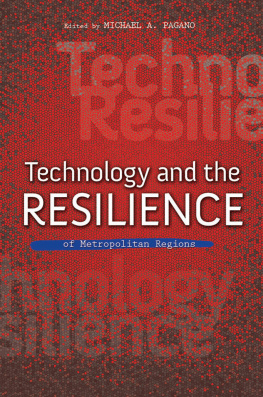
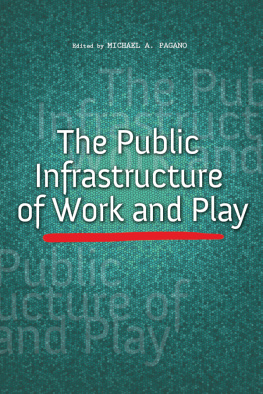
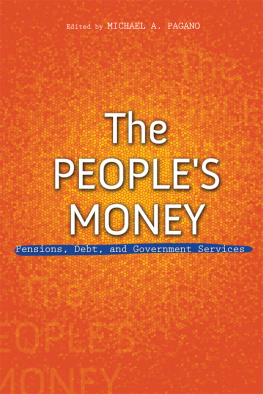
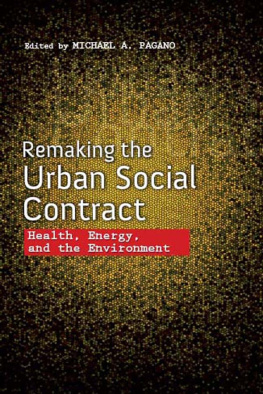
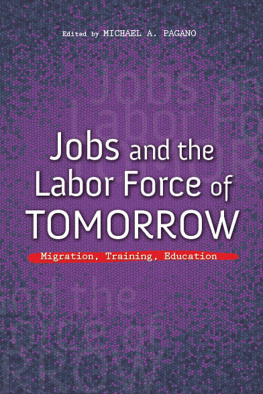

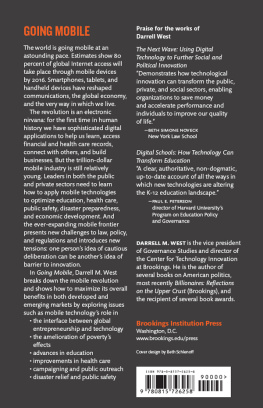
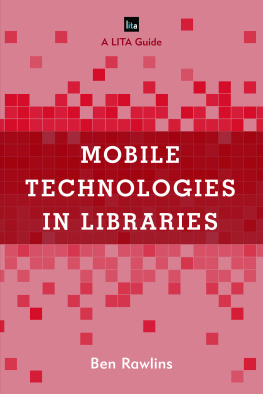
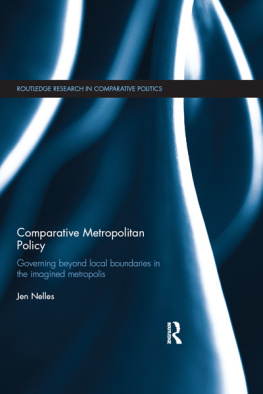
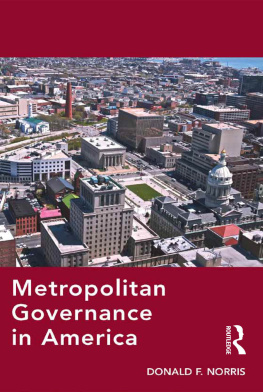
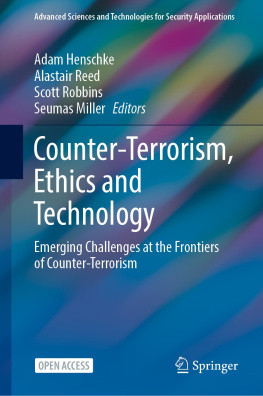
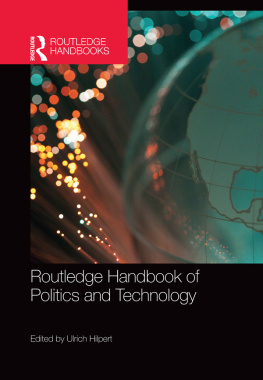


 This book is printed on acid-free paper.
This book is printed on acid-free paper.